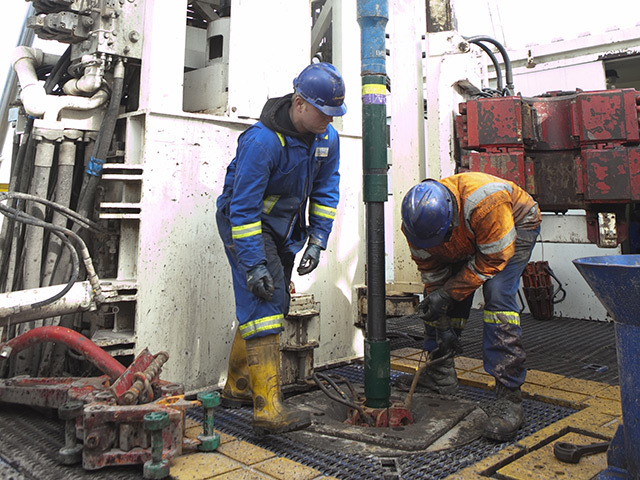
A mere $23.6billion worth of upstream oil and gas deals was conducted on the global mergers and acquisitions market during this year’s second quarter, according to analysts Evaluate Energy.
This is the smallest quarterly total since Q3 2009, which was hit by the credit crunch, depressed US gas prices and a sharp fall in oil prices.
“The explanation behind the latest quarter’s lacklustre performance, however, lacks the same drama; oil and gas prices have shown stability at $90 per barrel of oil and $4 per million cu.ft of gas in the US,” says Evaluate in its latest commentary.
It goes on to warn: “economic uncertainty still lingers though especially within the austerity-hit European market and many CEOs are erring to the side of caution when it comes to expanding beyond their company’s reach.
“Due to these reasons, perhaps it’s no surprise that the largest deals during the quarter involved national oil companies, who are less influenced by short and medium term economic fluctuations.”
The largest deal of the quarter involved ONGC and Oil India, which acquired a 10% stake in the more than 100trillion cu.ft gas resource located in Mozambique’s offshore Rovuma Basin for $2.5billion from Videocon Industries.
This deal follows the acquisition of Cove Energy at the end of 2012 when another national oil company, PTT, keen to gain control of the company’s flagship asset of an 8.5% interest in the Rovuma Offshore Area 1, paid $2.2 billion.
The next largest Q2 2013 deal involved Lukoil acquiring the Russian assets of Hess Corp for $2.05billion.
“The deal was initially expected to raise little over $1billion so the price negotiated can be seen as a coup for Hess,” says Evaluate.
Its analysts said Chinese companies were “uncharacteristically” quiet in terms of new deals during the quarter with only one notable transaction taking place; Sinopec acquired a 10% interest in block 31 offshore Angola via a deal with US major Marathon.
Chinese-based companies averaged $8.4billion of new global E&P deals per quarter, yet in Q2 2013, this deal between Sinopec and Marathon made the total just $1.5billion.
That said, despite the lack of traditional M&A, China did grab the world’s attention when it agreed a crude oil marketing deal with Rosneft worth $270billion over 25 years to import 300,000 barrels per day, including a $70billion up-front cash payment.
The third largest deal also derived from Africa with Petrobras of Brazil divesting a 50% stake in all of its African operations for $1.525billion to Banco BTG Pactua.
This sale is part of Petrobras’ $9.9billion divestment plan to partly fund development of its huge pre-salt oil reserves off the coast of Brazil, which will require $107billion investment over the next five years.
“The deal involves 73.9million barrels oil equivalent of proven reserves which are 95% oil and 57% developed, along with a considerable portfolio of exploration assets,” says Evaluate. “Given the amount of exploration upside in the deal the price paid per proven reserve of $20.63 represents a impressive deal for the buyer.”
Also singled out is the first major deal for the UK’s infant shale gas sector when Centrica farmed into a 25% stake in Cuadrilla Resources’ Bowland licence for $152million.
“So far, there has not been a true shale success story outside of North America, as Poland has yet to fulfil its early promise and any progress in France was quickly halted by environmental lobbyists,” says Evaluate.
“Despite potential environmental concerns the UK may also face, the sector will benefit from its strong indigenous demand, thereby foregoing the need for any LNG capabilities, and having a government who are keen to maximise tax revenues in the face of enforced austerity measures and the threat of Scottish devolution, which would take a large portion of the North Sea tax revenues away from the UK Treasury.”
So far in the first half of the year, the total deals value calculated by Evaluate is $51.5billion, which falls far short of the deal value for H1 2012 ($84.8billion) and H1 2011 ($70.2billion).
Recommended for you
